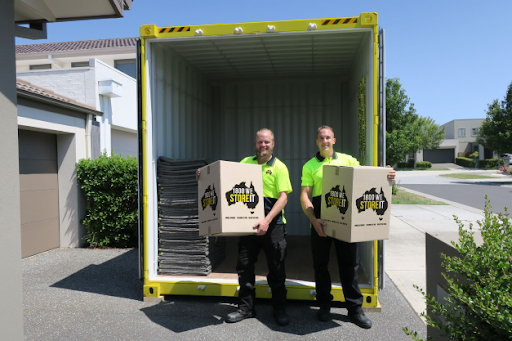Childhood Alzheimer’s is a term used to refer to two different diseases that cause children to have memory loss and other symptoms commonly associated with Alzheimer’s disease. Childhood Alzheimer’s can refer to: Niemann-Pick disease type C (NPC) Sanfilippo syndrome or mucopolysaccharidosis type III (MPS III)
Can you get Alzheimer’s as a kid?
It’s important to know that Alzheimer disease does not affect kids. It usually affects people over 65 years of age. Researchers have found medicines that seem to slow the disease down.
What is the youngest age someone can get Alzheimer’s?
Alzheimer disease most commonly affects older adults, but it can also affect people in their 30s or 40s. When Alzheimer disease occurs in someone under age 65, it is known as early-onset (or younger-onset) Alzheimer disease.
What are symptoms of childhood Alzheimer’s?
Alzheimer’s disease usually involves a gradual loss of memory and brain function. Early symptoms may include periods of forgetfulness or memory loss. Over time, a person may experience confusion or disorientation in familiar settings, including in the home.
What is Batten syndrome?
Batten disease is the common name for a broad class of rare, fatal, inherited disorders of the nervous system also known as neuronal ceroid lipofuscinoses, or NCLs. In these diseases, a defect in a specific gene triggers a cascade of problems that interferes with a cell’s ability to recycle certain molecules.
Why is it called Sanfilippo syndrome?
History. The condition is named after Sylvester Sanfilippo, the pediatrician who first described the disease in 1963.
Why do I keep forgetting things at 14?
Your teen may be suffering from a condition that affects their brain such as dyslexia, ADHD, depression, substance use disorder or problems with their thyroid.
Can a 14 year old have dementia?
Young-onset dementia is more likely to be inherited (passed on through genes) this affects up to 10% of younger people with dementia. Many younger people with dementia don’t have any other serious or long-term health conditions.
Why do I keep forgetting things at 16?
Forgetfulness at a young age may happen because you have too many things to do. When you multitask, your attention span gets crunched and you fail to absorb everything. For memory to become strong, repetition is important.
Can kids get dementia?
Although dementia is categorized as a rare disease, globally there are around 50,000 children who are affected by dementia. Medically, childhood dementia is termed as neuronal ceroid lipofuscinosis (NCL). There are fourteen types of known NCL diseases.
What are the 10 warning signs of dementia?
The 10 warning signs of dementia
- Sign 1: Memory loss that affects day-to-day abilities. …
- Sign 2: Difficulty performing familiar tasks. …
- Sign 3: Problems with language. …
- Sign 4: Disorientation in time and space. …
- Sign 5: Impaired judgement. …
- Sign 6: Problems with abstract thinking. …
- Sign 7: Misplacing things.
Is Alzheimer’s inherited from mother or father?
Family history is not necessary for an individual to develop Alzheimer’s. However, research shows that those who have a parent or sibling with Alzheimer’s are more likely to develop the disease than those who do not have a first-degree relative with Alzheimer’s.
Do people with Alzheimer’s know they have it?
It’s common in some cognitive conditions, including Alzheimer’s. So, if someone diagnosed with Alzheimer’s also has anosognosia, they won’t know or believe that they have it. Each person is unique, so the symptoms of anosognosia might vary. Symptoms may also change over time and might even change during a day.
Why is my memory so bad at 40?
Early in our 40s, we may start to notice it’s harder to remember things, like where we left our car keys. But researchers say this decline in memory may not really be a decline at all. Rather, they say it may be the result of a change in what information the brain focuses on during memory formation and retrieval.
Is Sanfilippo syndrome fatal?
Sanfilippo syndrome, or MPS III, is a fatal condition that affects an individual’s nervous system and neurological development. It is the result of a mutation leading to a deficiency of one of the enzymes necessary to break down heparan sulfate.
What is Bennetts disease?
Bennett disease – disease characterized by progressive proliferation of abnormal leukocytes found in hemopoietic tissues, other organs, and usually in the blood in increased numbers; often fatal. Synonym(s): leukemia.
What is Patton’s disease?
Nephropathy-deafness-hyperparathyroidism syndrome Disease definition. A rare syndromic deafness characterized by renal failure without hematuria, parathyroid hyperplasia and sensorineural deafness.
Are kids born with Sanfilippo syndrome?
What Are the Signs & Symptoms of Sanfilippo Syndrome? Kids who have the condition are born with it. But most won’t have symptoms until the preschool years, when they’re between 2 and 6 years old. Then, they start to show developmental delays and behavioral issues.
What are the signs of Sanfilippo syndrome?
What are the symptoms of Sanfilippo syndrome?
- delayed speech.
- behavior problems.
- certain features of autism spectrum disorder (difficulty with communication and social skills)
- sleep disturbances.
- developmental regression.
- intellectual disability.
- seizures.
- movement disorders.
Can you test for Sanfilippo?
Genes for Sanfilippo may be tested by sampling blood, a cheek swab, or a saliva collection. No-charge genetic testing and counseling for lysosomal storage diseases is available through Invitae. Results take an average of 10 to 21 days after Invitae receives the specimen. The preferred specimen is 3mL of whole blood.
Why do I remember faces but not names?
The memory for a face will be stored in one particular brain region, whereas a name is stored in a completely different brain region. … If our conversational partner’s name were tattooed on his or her face, recalling that string of letters later on would be much easier.
What do we call a person who forgets easily?
forgetful Add to list Share. To be forgetful is to be absentminded. … When you’re forgetful, you forget all kinds of things! A forgetful person misses deadlines and forgets about their spouse’s anniversary. Forgetful people are often spacy and careless; they’re not mindful of what they should be doing.
Why can’t I remember my childhood and teenage years?
Young children don’t have a fully developed range of emotions. As a result, childhood experiences may not register with the same emotional significance as those you’d have during adolescence or adulthood. Since these memories carry less weight, they fade more easily as you age.
Is it normal for 12 year olds to forget things?
There are many reasons kids are forgetful, including stress and lack of sleep. Being hungry can also have a big impact. But sometimes when kids have trouble remembering information, they may be struggling with a skill called working memory.
Who is the youngest person to have dementia?
About a year ago, Becky Barletta was diagnosed with frontotemporal dementia. At the age of just 31, the ski instructor based in Suffolk, U.K., became one of the youngest cases of dementia doctors had seen, The Telegraph reports.
Can you get Alzheimer’s at 16?
While age is the number one risk factor for Alzheimer’s disease, Alzheimer’s is not a natural part of aging and the disease affects more than just the senior age group. In fact, a recent study has found evidence of amyloid buildup in the brains of people as young as 20 years old.
Why do I forget words when speaking?
Aphasia is a communication disorder that makes it hard to use words. It can affect your speech, writing, and ability to understand language. Aphasia results from damage or injury to language parts of the brain. It’s more common in older adults, particularly those who have had a stroke.
Why do I forget names so easily?
The brain is quick to process facial features and make recognition quick, but not so much for remembering names. People need to be interested in making room in their already overloaded brain to retain the name.
Why do I forget things immediately after thinking of them?
Forgetfulness can arise from stress, depression, lack of sleep or thyroid problems. Other causes include side effects from certain medicines, an unhealthy diet or not having enough fluids in your body (dehydration). Taking care of these underlying causes may help resolve your memory problems.


